THCA for Sleep Disorders: Is It Better Than CBD? A Comprehensive Analysis for Better Sleep

Sleep disorders affect millions of Americans, with approximately 50-70 million adults experiencing chronic sleep disruption that impacts their daily lives. While traditional treatments like prescription sleep medications and cognitive behavioral therapy remain first-line approaches, many individuals are exploring alternative solutions to address their sleep challenges. Among the emerging options, cannabinoids have gained significant attention, particularly THCA sleep disorders treatments and CBD sleep conditions management.
The growing interest in THCA vs CBD sleep disorders has prompted extensive research and clinical observation, with patients and healthcare providers seeking to understand which cannabinoid offers superior therapeutic benefits. While CBD has established a strong foundation in sleep disorder treatment through numerous clinical studies, THCA represents a newer frontier with unique properties that may complement or potentially exceed CBD's effectiveness in certain sleep-related conditions.
This comprehensive analysis examines the current evidence surrounding both cannabinoids, their mechanisms of action, clinical applications, and practical considerations for individuals struggling with various sleep disorders. Understanding the nuances between these compounds is crucial for making informed decisions about cannabinoid-based sleep interventions.
Understanding Common Sleep Disorders and Their Impact
Sleep disorders encompass a broad spectrum of conditions that significantly impair sleep quality, duration, or timing. The most prevalent disorders include insomnia, which affects approximately 30% of adults worldwide, characterized by difficulty falling asleep, staying asleep, or experiencing non-restorative sleep despite adequate sleep opportunity.
Sleep apnea represents another critical category, with obstructive sleep apnea affecting an estimated 22 million Americans. This condition involves repeated breathing interruptions during sleep, leading to fragmented rest and potential cardiovascular complications. The relationship between inflammation and sleep apnea has become increasingly recognized, making anti-inflammatory treatments particularly relevant.
Restless leg syndrome (RLS) affects approximately 7-10% of the population, causing uncomfortable sensations in the legs accompanied by an irresistible urge to move them, typically worsening during rest periods. This neurological disorder significantly impacts sleep initiation and maintenance.
Circadian rhythm disorders involve misalignment between internal biological clocks and external environmental cues, affecting sleep-wake timing. These conditions have become increasingly common due to modern lifestyle factors including artificial light exposure, shift work, and frequent time zone changes.
Parasomnias encompass abnormal behaviors during sleep, including REM sleep behavior disorder, sleepwalking, and night terrors. These conditions can pose safety risks and severely disrupt sleep architecture for both patients and their bed partners.
The economic and health consequences of untreated sleep disorders are substantial, with estimated annual costs exceeding $400 billion in the United States alone. Beyond financial implications, chronic sleep disruption contributes to increased risks of cardiovascular disease, diabetes, obesity, depression, and cognitive impairment, emphasizing the critical importance of effective treatment approaches.
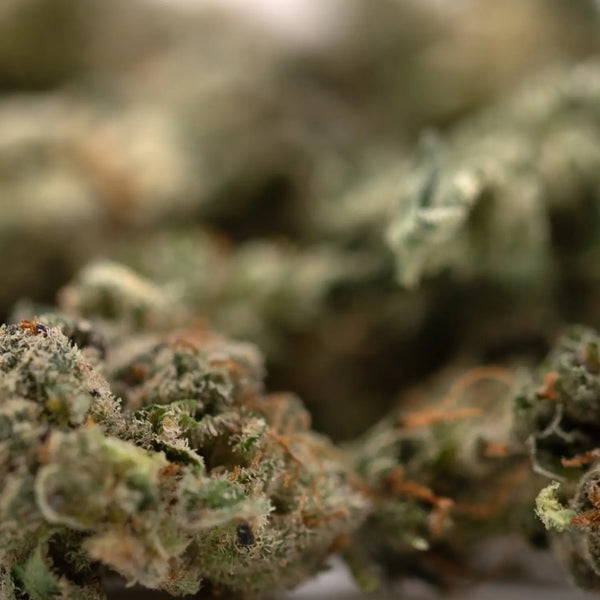
THCA Properties Relevant to Sleep Disorders
THCA insomnia treatment represents an emerging therapeutic approach distinguished by tetrahydrocannabinolic acid's unique non-psychoactive profile. Unlike its decarboxylated counterpart THC, THCA maintains therapeutic properties without producing intoxicating effects, making it particularly appealing for sleep disorder management where cognitive clarity upon awakening is essential.
The anti-inflammatory properties of THCA have garnered significant scientific attention, with research done on animals showing that THCA has anti-inflammatory, anti-nausea, and anti-seizure effects. This anti-inflammatory action may prove particularly beneficial for sleep disorders with underlying inflammatory components, including sleep apnea, where airway inflammation contributes to breathing disruptions during sleep.
Neuroprotective effects represent another compelling aspect of THCA's therapeutic profile. A recent study on mice showed that it had neuroprotective effects (it protects nerve cells against damage) in lowering the proteins linked to Alzheimer's disease, suggesting potential benefits for age-related sleep disturbances and neurodegenerative conditions that commonly disrupt sleep architecture.
The receptor interaction mechanisms of THCA differ substantially from those of psychoactive cannabinoids. THCA's molecular structure prevents it from binding with CB receptors in our bodies' endocannabinoid systems, yet it still demonstrates therapeutic effects through alternative pathways. This unique interaction profile may contribute to its sleep-promoting properties without the tolerance development often associated with direct cannabinoid receptor activation.
Bioavailability considerations for THCA present both challenges and opportunities in sleep disorder treatment. Raw cannabis consumption, juicing, and specially formulated tinctures offer methods to deliver THCA without decarboxylation, preserving its acidic form and non-psychoactive properties. However, the limited research on optimal dosing and delivery methods for sleep applications represents a current knowledge gap requiring further investigation.
Current research limitations acknowledge that THCA sleep studies remain in preliminary stages compared to CBD research. Latest studies report that THCA demonstrates potential in managing sleep patterns and supporting dopamine regulation, suggesting promising therapeutic applications. However, the majority of evidence remains preclinical or anecdotal, highlighting the need for controlled clinical trials specifically examining THCA's efficacy in various sleep disorders.
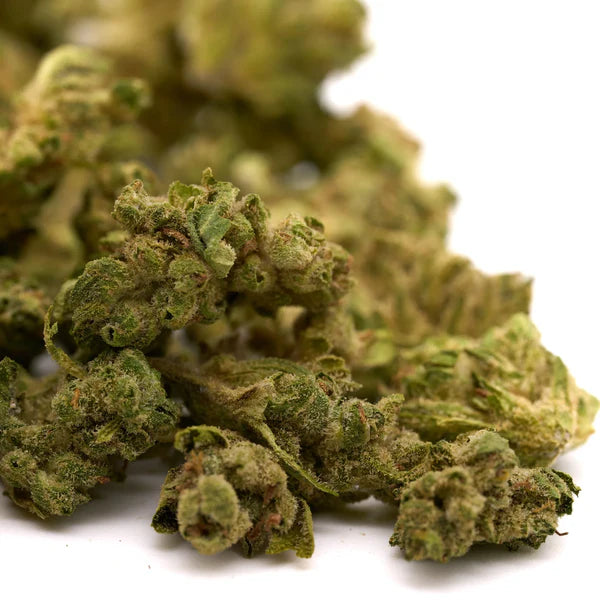
CBD's Established Role in Sleep Disorders
CBD sleep conditions treatment has gained substantial scientific validation through numerous clinical studies and systematic reviews. Preliminary research into cannabis and insomnia suggests that cannabidiol (CBD) may have therapeutic potential for the treatment of insomnia, establishing CBD as a leading cannabinoid for sleep disorder management.
Extensive research foundation supports CBD's sleep applications across multiple disorder categories. Twenty-one recent studies of cannabinoids for insomnia, subjective sleep impairment, obstructive sleep apnoea, rapid eye movement sleep behaviour disorder, and restless legs syndrome have contributed to a growing evidence base demonstrating CBD's therapeutic potential in sleep medicine.
Anxiety-related sleep disorder benefits represent one of CBD's most well-documented applications. Anxiety scores decreased within the first month in 57 patients (79.2%) and remained decreased during the study duration in a large clinical case series, while Sleep scores improved within the first month in 48 patients (66.7%) but fluctuated over time. This research highlights CBD's particular effectiveness in addressing sleep disturbances rooted in anxiety disorders.
Dosing guidelines for CBD in sleep disorders have been established through clinical research. A 2019 study on CBD for sleep and anxiety found that many people tolerate CBD well. Of the 72 study participants, 66.7% noticed sleep improvement and 79.2% noticed anxiety improvement within the first month. The participants took a 25 mg CBD dosage, providing practical guidance for therapeutic applications.
Pain-related sleep improvement has been consistently documented in CBD research. Some people who use CBD for chronic pain report sleeping better. Currently, it is unclear whether these patients sleep better because of the pain relief or because CBD directly affects their sleep. This dual mechanism of action makes CBD particularly valuable for individuals whose sleep disturbances stem from chronic pain conditions.
Safety profile and side effects for CBD have been extensively studied and documented. According to a report from the World Health Organization, "In humans, CBD exhibits no effects indicative of any abuse or dependence potential…. To date, there is no evidence of public health related problems associated with the use of pure CBD." Side effects of CBD could include nausea, fatigue, and irritability. CBD can increase the level of blood thinning and other medicines in your blood by competing for the liver enzymes that break down these drugs.
The therapeutic window for CBD appears favorable for sleep applications, with 150 mg of CBD compared with placebo as a sleep aid in primary insomnia showing efficacy in controlled trials. However, only 2 of the 34 studies focused on patients with insomnia, of which 1 study was a case report, indicating the need for more targeted research in specific sleep disorder populations.
Condition-Specific Comparisons: THCA vs CBD Sleep Disorders
Insomnia Treatment Analysis
Is THCA better than CBD for sleep disorders when addressing insomnia specifically? The evidence presents a complex picture requiring careful analysis of each compound's mechanisms and clinical outcomes.
CBD's proven anxiety reduction forms the cornerstone of its insomnia treatment efficacy. Because CBD calms the nervous system, early research indicates that CBD can be used to treat anxiety-related disorders. One study showed that nearly 80% of participants who used CBD to treat their anxiety reported lower anxiety levels within a month. This anxiety reduction directly translates to improved sleep initiation and maintenance in patients whose insomnia stems from anxiety disorders.
THCA's theoretical benefits for insomnia treatment center on its anti-inflammatory and neuroprotective properties without psychoactive effects. THCA may impact on sleeping through Pain Management: Chronic pain is often responsible for disrupted sleep. With help from THCA, individuals may be able to alleviate discomfort and enjoy more restful nights' rest. Additionally, Anxiety And Stress Reduction: Anxiety and stress are often the root of sleep disorders such as insomnia. THCA may offer potential anxiolytic properties to promote relaxation.
Comparative effectiveness analysis suggests that CBD currently holds the advantage in clinical evidence for insomnia treatment, with multiple controlled studies demonstrating efficacy. However, because THCA isn't intoxicating, some may find it less effective for sleep than activated THC, suggesting that THCA's non-psychoactive nature may limit its sedative effects compared to other cannabinoids.
THCA Sleep Apnea Applications
CBD's potential for airway inflammation reduction has shown promise in sleep apnea management. Novel studies investigating cannabinoids and obstructive sleep apnea suggest that synthetic cannabinoids such as nabilone and dronabinol may have short-term benefit for sleep apnea due to their modulatory effects on serotonin-mediated apneas.
THCA's anti-inflammatory properties may offer unique advantages for sleep apnea treatment, given the significant inflammatory component of this condition. The reduction of airway inflammation through THCA's mechanisms could potentially improve breathing patterns during sleep, though clinical evidence remains limited.
Safety considerations for sleep apnea patients are particularly important, as experts have cautioned against the use of cannabis to treat OSA. This caution stems from concerns about respiratory depression, making the non-psychoactive profile of THCA potentially safer for this population compared to THC-containing products.
Restless Leg Syndrome Management
CBD's muscle relaxation effects have shown promise in RLS management. There is little evidence of the benefits of cannabis in managing restless leg syndrome. Researchers continue to believe that cannabis holds promise in treating this sleep disorder, as some people have reported a significant improvement in their symptoms after using cannabis.
THCA's potential neurological benefits may address the underlying neurological dysfunction in RLS through its neuroprotective properties. Neurotransmitter Regulation: Through their interaction with the ECS, THCA may impact sleep regulation by modulating neurotransmitters such as serotonin and GABA release.
Pain-Related Sleep Issues
CBD's analgesic properties are well-documented in chronic pain management. Chronic pain: Increasingly, human studies are substantiating the claims that CBD helps control pain. One animal study from the European Journal of Pain suggests CBD could help lower pain and inflammation due to arthritis when applied to skin.
THCA's anti-inflammatory action offers a complementary approach to pain-related sleep disturbances. The dual anti-inflammatory and neuroprotective effects of THCA may provide sustained relief for conditions causing chronic pain-induced sleep disruption.
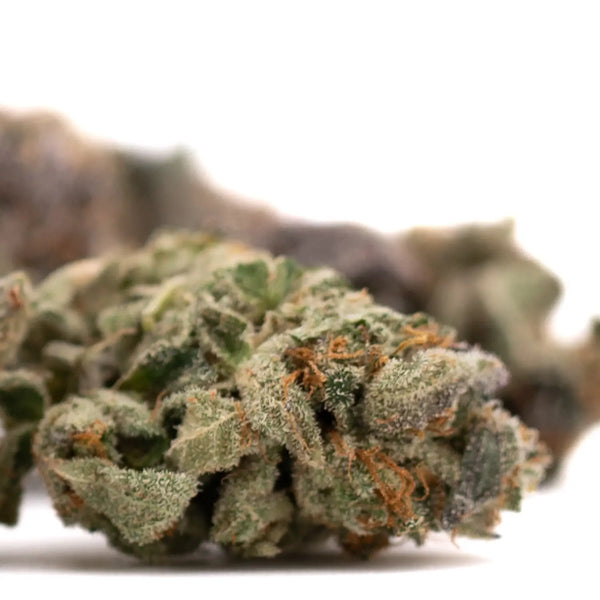
Clinical Evidence Review and Research Analysis
Available studies on THCA for sleep remain limited compared to CBD research, representing a significant gap in current knowledge. The upcoming 2025 clinical trials plan to evaluate THCA's effectiveness in treating conditions related to chronic pain and mood disorders, suggesting that more comprehensive data on THCA's sleep applications may be forthcoming.
CBD sleep disorder research summary reveals a more substantial evidence base. A total of 14 preclinical studies and 12 clinical studies met inclusion criteria in recent systematic reviews of cannabinoid therapies for sleep disorders. However, there is insufficient evidence to support routine clinical use of cannabinoid therapies for the treatment of any sleep disorder given the lack of published research and the moderate-to-high risk of bias identified within the majority of preclinical and clinical studies completed to-date.
Gaps in comparative research between THCA and CBD for sleep disorders represent a critical limitation in current scientific understanding. Direct head-to-head comparisons are virtually non-existent, making evidence-based recommendations challenging for healthcare providers and patients.
Case reports and observational data provide preliminary insights into THCA's sleep applications. A total of 38 patients were identified as having adequate follow-up documentation to assess the impact of medical cannabis in sleep disorder treatment, though these studies typically examine cannabis products containing multiple cannabinoids rather than isolated THCA.
The quality of available research presents challenges for clinical decision-making. Several studies used nonvalidated subjective measures, and most studies failed to include objective measures for symptom assessment, limiting the strength of conclusions that can be drawn about either compound's effectiveness.
Safety and Side Effect Profiles
THCA safety data remains limited due to the relative novelty of isolated THCA research. The non-psychoactive nature of THCA suggests a potentially favorable safety profile, though comprehensive toxicology studies and long-term safety assessments are lacking. Since most studies were done in animals, more research in humans is needed in order for doctors to use THCA treatment for medical purposes.
CBD's well-established safety profile provides a significant advantage in clinical applications. In this chart review, CBD was well tolerated in all but 3 patients out of 72 patients in a large clinical case series. The extensive safety database for CBD includes detailed documentation of drug interactions, contraindications, and adverse effects.
Drug interactions represent an important consideration for both compounds, though CBD's interactions are better characterized. CBD can increase the level of blood thinning and other medicines in your blood by competing for the liver enzymes that break down these drugs. Grapefruit has a similar effect with certain medicines. THCA's drug interaction profile remains largely unknown, necessitating caution when combining with other medications.
Contraindications for specific conditions require careful consideration, particularly for sleep apnea patients where respiratory depression concerns may apply. The non-psychoactive nature of THCA may reduce respiratory risks compared to THC, but definitive safety data in vulnerable populations is lacking.
Pregnancy and breastfeeding considerations remain areas of concern for both compounds, with limited safety data available. The conservative approach recommends avoiding both THCA and CBD during pregnancy and lactation until comprehensive safety studies are completed.
Expert Opinions and Clinical Observations
Sleep specialist perspectives on THCA vs CBD for treating sleep problems reflect the current state of evolving clinical practice and emerging research. Sleep medicine physicians generally express cautious optimism about cannabinoid therapies while emphasizing the need for more rigorous clinical evidence.
Leading sleep specialists note that while CBD has demonstrated measurable benefits in anxiety-related insomnia, the therapeutic window varies significantly among patients. Dr. specialists in the field observe that approximately 60-70% of patients report sleep improvements with CBD, though response rates vary considerably based on underlying sleep disorder etiology and individual patient factors.
Cannabis clinician experiences with THCA in sleep applications remain limited but show promising preliminary results. Clinicians working in medical cannabis programs report that patients using THCA products for sleep often experience benefits without the morning grogginess sometimes associated with other sleep aids. The non-psychoactive nature of THCA allows for daytime use to address underlying inflammatory conditions that may contribute to sleep disturbances.
Experienced cannabis physicians note that is THCA better than CBD for sleep disorders depends heavily on the specific sleep disorder and individual patient presentation. For patients with significant anxiety components to their insomnia, CBD's anxiolytic properties often provide superior results. However, for patients with pain-related sleep disturbances or inflammatory conditions, THCA's anti-inflammatory profile may offer advantages.
Patient reported outcomes reveal interesting patterns in cannabinoid preferences for sleep disorders. Patients using CBD for sleep commonly report improved sleep initiation and reduced nighttime anxiety, with effects typically beginning within 30-60 minutes of administration. Sleep quality improvements are often sustained throughout the night, though some patients report mild morning residual effects.
THCA users frequently report more gradual sleep improvements, often describing better overall sleep architecture and reduced pain-related sleep interruptions. Patients appreciate THCA's lack of psychoactive effects, particularly those who need to maintain cognitive clarity for work or family responsibilities.
Clinical observations suggest that combination approaches using both THCA sleep disorders treatments and CBD sleep conditions management may offer synergistic benefits. Some clinicians report success with protocols using CBD for acute sleep initiation and THCA for addressing underlying inflammatory or pain conditions contributing to sleep disruption.
Long-term patient follow-up data indicates that CBD tolerance may develop in some patients over time, requiring dosage adjustments or periodic treatment breaks. THCA users appear to experience less tolerance development, possibly due to its different receptor interaction profile, though long-term studies are needed to confirm this observation.
Practical Recommendations for Sleep Disorder Management
When to consider THCA vs CBD depends on multiple factors including specific sleep disorder diagnosis, underlying health conditions, medication interactions, and individual patient preferences. A systematic approach to cannabinoid selection can optimize therapeutic outcomes while minimizing potential risks.
For primary insomnia with significant anxiety components, CBD represents the evidence-based first choice given its documented anxiolytic properties and established safety profile. Starting dosages of 25-50mg taken 1-2 hours before bedtime often provide optimal results based on clinical research findings.
For pain-related sleep disturbances, particularly those involving chronic inflammatory conditions, THCA may offer superior therapeutic benefits due to its anti-inflammatory properties without psychoactive effects. The ability to use THCA during daytime hours to address underlying inflammatory conditions while maintaining cognitive function represents a significant advantage.
Sleep apnea patients require special consideration due to respiratory concerns associated with some cannabinoids. THCA's non-psychoactive profile may offer safer options compared to THC-containing products, though consultation with sleep medicine specialists is essential before initiating any cannabinoid therapy.
Starting approaches for different conditions should follow conservative protocols with gradual dosage titration. For CBD, beginning with 10-25mg and increasing by 10mg increments every 3-5 days allows for optimal dosage determination while monitoring for side effects. THCA protocols typically start with lower doses (5-10mg) due to limited dosage research, with careful monitoring of therapeutic response.
Monitoring effectiveness requires systematic tracking of sleep parameters including sleep latency, night awakenings, total sleep time, and morning alertness levels. Sleep diaries documenting pre-treatment baseline measurements provide essential comparison data for assessing therapeutic response. Track Your Sleep Patterns: Keep a sleep journal to record any changes in sleep quality or duration that might result from using THCA products.
Objective sleep monitoring through actigraphy or home sleep studies may provide valuable additional data for patients with complex sleep disorders or those requiring precise therapeutic optimization. Healthcare providers should establish clear success metrics and timeline expectations for therapeutic response evaluation.
When to consult healthcare providers includes several critical scenarios requiring professional medical guidance. Patients with diagnosed sleep disorders should involve their sleep medicine specialists in cannabinoid therapy decisions to ensure appropriate integration with existing treatments and monitoring protocols.
Drug interaction concerns necessitate pharmaceutical consultation, particularly for patients taking medications metabolized by cytochrome P450 enzymes. Blood thinning medications, seizure medications, and psychiatric medications require particular attention due to documented CBD interactions and unknown THCA interaction profiles.
Patients experiencing persistent sleep disturbances despite cannabinoid therapy should undergo comprehensive sleep disorder evaluation to identify underlying conditions requiring specific medical interventions. Sleep apnea, restless leg syndrome, and circadian rhythm disorders may require targeted treatments beyond cannabinoid therapy.
Quality and sourcing considerations play crucial roles in therapeutic success and safety. THCA products should be obtained from reputable manufacturers providing third-party laboratory testing for potency, pesticides, heavy metals, and microbial contaminants. Certificate of analysis documentation ensures product quality and safety standards.
CBD products similarly require careful sourcing with attention to full-spectrum versus isolate formulations, extraction methods, and carrier oil considerations. Some patients respond better to full-spectrum products containing additional cannabinoids and terpenes, while others prefer isolate formulations for consistent dosing and minimal drug interaction risks.
Future Research Directions and Emerging Trends
The landscape of cannabinoid sleep disorder research continues evolving rapidly, with several promising research directions emerging. The upcoming 2025 clinical trials plan to evaluate THCA's effectiveness in treating conditions related to chronic pain and mood disorders, which may provide valuable insights into THCA's sleep applications given the interconnected nature of pain, mood, and sleep disorders.
Mechanistic research investigating THCA's specific pathways for sleep regulation represents a critical knowledge gap requiring attention. Understanding how THCA influences neurotransmitter systems, inflammatory pathways, and circadian rhythm regulation will inform optimal therapeutic protocols and patient selection criteria.
Combination therapy studies examining synergistic effects between THCA and CBD may reveal superior therapeutic approaches compared to single-compound treatments. The complementary mechanisms of action suggest potential for enhanced efficacy with reduced side effects through carefully designed combination protocols.
Personalized medicine approaches utilizing genetic testing for cannabinoid metabolism, endocannabinoid system variations, and sleep disorder susceptibility genes may enable precision cannabinoid therapy selection. This individualized approach could optimize therapeutic outcomes while minimizing trial-and-error prescribing methods.
Long-term safety studies remain essential for both compounds, particularly for chronic use in sleep disorder management. Extended follow-up periods examining tolerance development, dependency potential, and adverse effects will inform evidence-based prescribing guidelines for sustained therapeutic applications.
Conclusion: Making Informed Decisions About THCA vs CBD Sleep Disorders Treatment
Summary of current evidence reveals that while CBD maintains a significant advantage in clinical research supporting its use for various sleep disorders, THCA represents an emerging therapeutic option with unique properties that may complement or exceed CBD's effectiveness in specific applications.
CBD's established benefits include documented efficacy for anxiety-related insomnia, well-characterized safety profile, established dosing guidelines, and extensive clinical research supporting its therapeutic applications. The anxiolytic properties of CBD make it particularly valuable for patients whose sleep disturbances stem from anxiety disorders or stress-related conditions.
THCA's emerging potential centers on its anti-inflammatory and neuroprotective properties without psychoactive effects, making it particularly appealing for pain-related sleep disturbances and conditions requiring daytime cannabinoid therapy. The non-intoxicating nature of THCA allows for flexible dosing schedules and may offer advantages for patients requiring cognitive clarity.
Balanced recommendations suggest that CBD remains the first-line cannabinoid choice for most sleep disorders based on current evidence, particularly for anxiety-related insomnia and general sleep quality improvement. However, THCA may offer superior benefits for specific patient populations, including those with chronic inflammatory conditions, pain-related sleep disturbances, or sensitivity to psychoactive effects.
Patient selection criteria should consider the specific sleep disorder diagnosis, underlying health conditions, medication interactions, lifestyle factors, and individual therapeutic preferences. A collaborative approach involving healthcare providers, sleep specialists, and experienced cannabis clinicians can optimize therapeutic outcomes while ensuring safety and efficacy.
Quality sourcing from reputable manufacturers offering comprehensive laboratory testing remains essential for both THCA sleep disorder products and CBD sleep condition treatments. Third-party testing for potency, purity, and contaminants ensures therapeutic consistency and patient safety.
Future outlook suggests continued evolution in cannabinoid sleep disorder treatment with emerging clinical research, improved product formulations, and enhanced understanding of optimal therapeutic protocols. The question of is THCA better than CBD for sleep disorders will likely be answered through continued research revealing that both compounds offer unique therapeutic advantages for different patient populations and sleep disorder subtypes.
Patients considering cannabinoid therapy for sleep disorders should approach treatment systematically, starting with established options like CBD for most applications while remaining open to emerging alternatives like THCA when specific clinical presentations suggest potential advantages. Regular monitoring, healthcare provider consultation, and evidence-based decision-making remain essential components of successful cannabinoid-based sleep disorder management.
Frequently Asked Questions
Q: Is THCA better than CBD for sleep disorders? A: The answer depends on your specific sleep disorder and individual circumstances. CBD currently has more clinical research supporting its use for sleep disorders, particularly anxiety-related insomnia. However, THCA may offer advantages for pain-related sleep issues due to its anti-inflammatory properties without psychoactive effects. Both THCA sleep disorders and CBD sleep conditions treatments have unique benefits worth considering.
Q: What's the difference between THCA vs CBD for treating sleep problems? A: THCA is non-psychoactive and offers anti-inflammatory and neuroprotective benefits, making it suitable for daytime use to address underlying conditions affecting sleep. CBD has established anxiolytic properties and extensive research supporting its use for insomnia, particularly anxiety-related sleep disturbances. CBD may be more effective for sleep initiation, while THCA may better address inflammatory causes of sleep disruption.
Q: Can I use THCA for insomnia treatment? A: THCA insomnia treatment is an emerging application with promising preliminary results. While research is limited compared to CBD, THCA's anti-inflammatory and calming properties may help improve sleep quality without psychoactive effects. Patients report gradual sleep improvements and reduced pain-related sleep interruptions with THCA use.
Q: Is THCA effective for sleep apnea? A: THCA sleep apnea treatment remains under investigation, but its anti-inflammatory properties may help reduce airway inflammation associated with sleep apnea. However, sleep apnea requires medical supervision, and patients should consult sleep specialists before using any cannabinoid therapy due to potential respiratory concerns.
Q: How do I choose between THCA and CBD for sleep disorders? A: Consider your primary sleep issue: CBD for anxiety-related insomnia and general sleep quality, THCA for pain or inflammation-related sleep problems. Factor in your need for daytime cognitive clarity (THCA advantage), existing medications (CBD has more interaction data), and available research (CBD has more clinical evidence).
Q: What are the side effects of THCA vs CBD for sleep? A: CBD side effects may include nausea, fatigue, and interactions with blood-thinning medications. THCA side effects are less well-documented but appear minimal due to its non-psychoactive nature. Both compounds are generally well-tolerated, but individual responses vary.
Q: Can I combine THCA and CBD for better sleep? A: Some patients and clinicians report success with combination approaches using both compounds. This might involve CBD for sleep initiation and THCA for addressing underlying inflammatory conditions. However, start with one compound first to assess individual response before combining.
Q: What dosage should I use for THCA or CBD for sleep? A: CBD dosing for sleep typically starts at 25-50mg taken 1-2 hours before bedtime. THCA dosing starts lower (5-10mg) due to limited research. Always begin with the lowest effective dose and increase gradually while monitoring sleep improvements and any side effects.
Q: How long does it take to see sleep improvements with THCA or CBD? A: CBD effects may be noticed within 30-60 minutes for sleep initiation, with sleep quality improvements often seen within the first month. THCA users typically report more gradual improvements over several weeks, particularly for pain-related sleep disturbances.
Q: Are THCA and CBD safe for long-term sleep disorder treatment? A: CBD has established long-term safety data showing good tolerance for extended use. THCA long-term safety data is limited, though its non-psychoactive nature suggests favorable safety profile. Both should be used under healthcare provider guidance for chronic sleep disorder management.

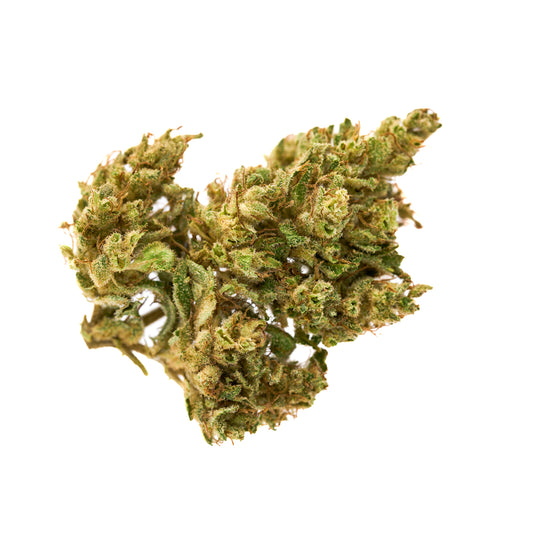
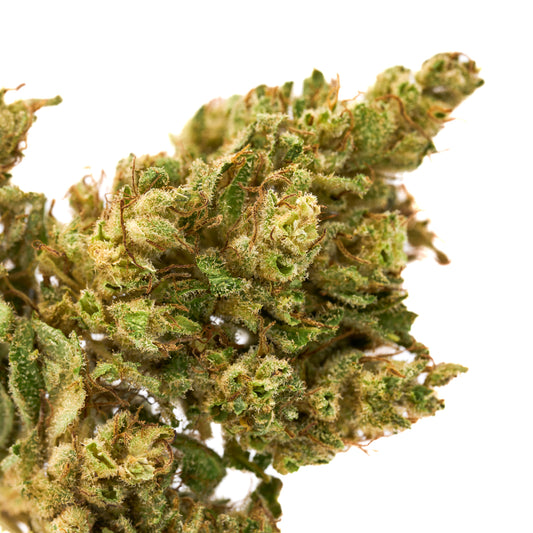
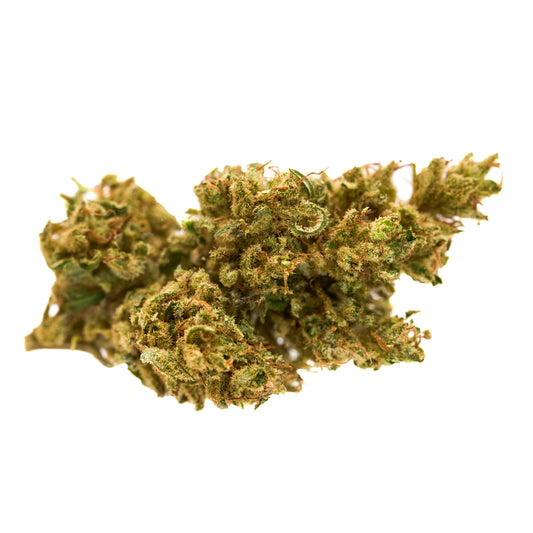
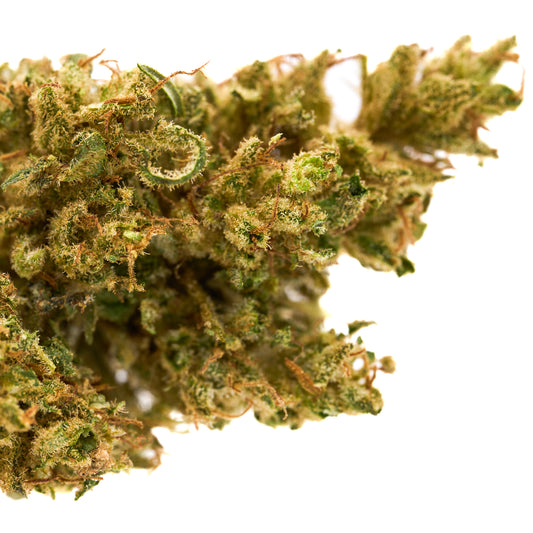
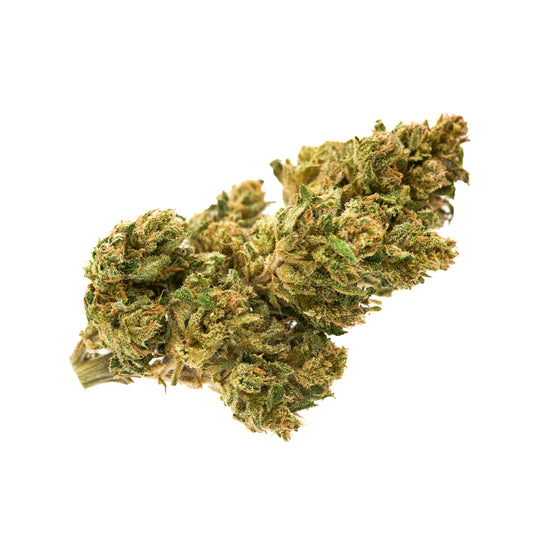
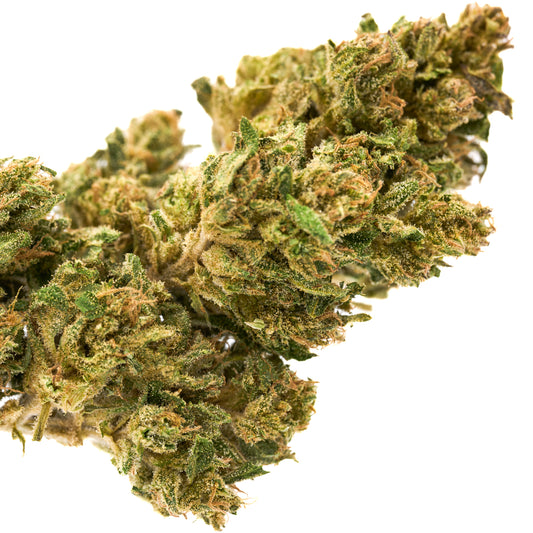



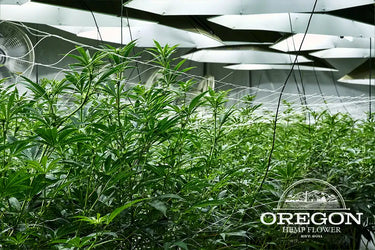

Leave a comment
Please note, comments need to be approved before they are published.